The future of Xbox: Will history remember 'the end of exclusive games' as the right choice?
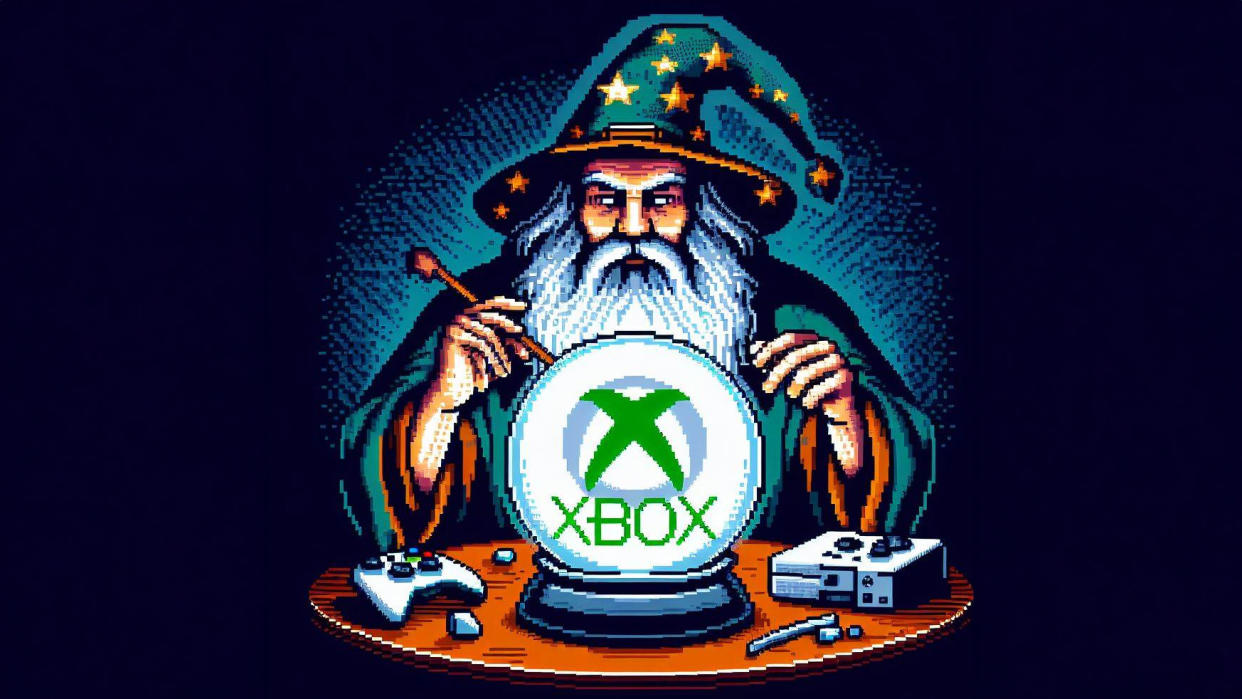
Microsoft has changed the game, literally.
Rumors began to swirl in November that Microsoft was planning to port Sea of Thieves and Hi-Fi Rush to other platforms, alongside various other rumors. I'd heard Hellblade 2 was being ported, I'd heard Starfield was being ported, and since I was able to debunk both of these via my own sources — by January I'd dismissed the whole premise. However, the rumors persisted. Over time, it became clear that the Sea of Thieves and Hi-Fi Rush rumors were true, and since then, Grounded and Pentiment were all outed as the first of four games ditching their Xbox console exclusivity label.
Microsoft's radio silence on the matter was met with frustration in some quarters and disbelief in others. For many, this feels like the first step on Microsoft's quest to become the next Sega, bowing out of console manufacturing altogether in favor of publishing only. Growing and maintaining your own hardware ecosystem is difficult in general, and has proven more difficult for Microsoft than its closest competitors, Nintendo and Sony PlayStation. That is, at least on the face of it.
When you dig down into the numbers, Xbox is healthier than it ever has been. PlayStation 5 is reportedly outselling the Xbox Series X and Xbox Series S to a ratio of 3:1 globally. Yet Microsoft has more console users than it has ever had according to its investor calls, even when factoring in the Xbox 360 generation where perceptions of the brand were far more positive. Microsoft has more PC players than ever, both across Steam and within its own PC Game Pass platform. Microsoft is also developing a cloud gaming platform, based on its console architecture, which is enjoying "double digit growth."
Despite all these flowery figures and positive proclamations … there's an undercurrent of unease in the whole gaming industry. Layoffs are rife across all of tech, despite Microsoft's and others' "record" numbers. And you have to wonder, would Microsoft be making these moves were it in Sony's position, with its larger install base? Will these "changes" lead to a long term negative impact, even if there's short term gains? Could this lead to the end of Xbox as we know it? Nobody has a crystal ball, but we can at least make some well-meaning predictions.
Microsoft is seeking to grow Xbox, not shrink it
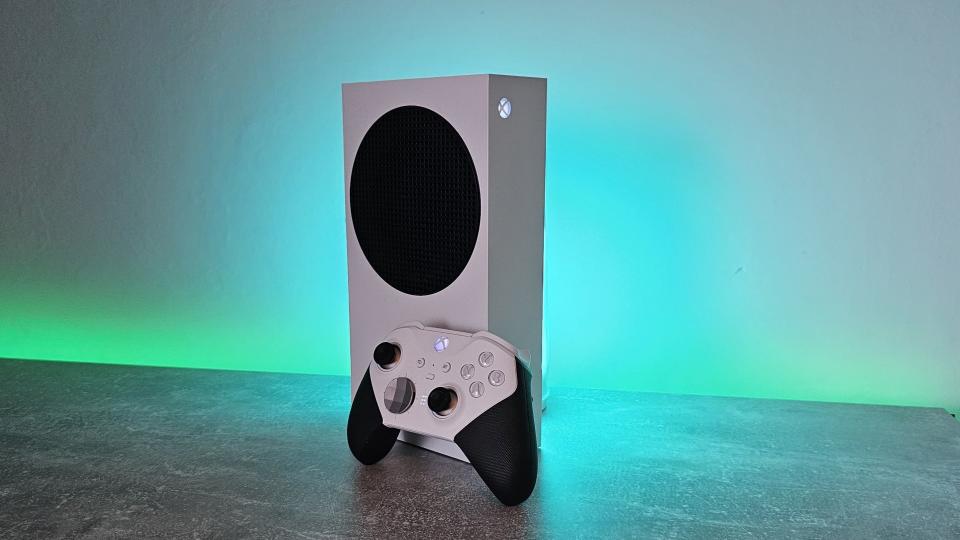
Top recommendations
- Best Xbox headsets to get in 2024
- Best upcoming Xbox games
- Best Xbox controller deals
- Best upcoming PC games
- Best gaming handhelds
The first thing to note is that Xbox's console business remains the apex of its income pyramid, at least right now. Microsoft gets a 30% cut of every game sold on its platform, every Fortnite skin purchased, and every game bought through Roblox. It owns 100% of the revenue generated now by Call of Duty and Minecraft on the console, and enjoys millions of active subscribers of Xbox Game Pass Core at $10 per month, and Xbox Game Pass Ultimate at $15 per month. People often point to Microsoft's Xbox Series X|S console sales as evidence that the platform is doing poorly, but given the fact the overall market for console gaming is flat, the fact Microsoft is enjoying "record" engagement on console shows that the PS4 / Xbox One generation is enjoying an unusually long tail. This is because, in essence, we're still within that generation. PS4, Xbox One, Xbox Series X|S, and PS5 all share X86 architecture, which makes maintaining games like Call of Duty, FIFA, Fortnite, and other heavy-hitters far easier than it would've been in the past — and these are the kinds of games driving the profit margins right now.
Sony explained in its recent keynote that its profit margins have suffered, in part, because the price of the chips used to make gen 9 consoles like the PS5 and Xbox Series X|S have not come down in price. This is in no small part to the massive demand for servers used for generating cloud-based services, like A.I. and other things. Microsoft is doubtless experiencing the same problem. It was the case that back in the day, the overheads of maintaining your own ecosystem were generally cheaper. But it's also true that over time, basically everything gets more expensive. $70 in today's money has a completely different value to $70 in decades past, but game prices have barely moved, while costs have continued to rise.
Yet, despite these rising costs, there aren't rising hours to play games, nor are there rising amounts of players and customers to play these games. In a world where console user bases aren't growing, for Sony or Microsoft, finding new gamers and new customers who want the types of experiences that we generally enjoy is becoming more difficult. Your costs are going up, but your addressable audience isn't growing in line with costs. By some metrics, it might even be shrinking, as competition for our free time is more aggressive than ever. So, what do you do, in this scenario?
The obvious ones are already being explored by Microsoft and Sony both. Sony signalled its intent to bring more of its games to PC day and date, rather than months or years after the fact. The advent of Helldivers 2 and its runaway popularity should see to that, as one of the first simultaneous PC / PS5 releases from the company. Microsoft has been putting its games day and date onto PC for years, since Quantum Break back in 2016. Microsoft moved from its own Microsoft Store, eventually to Steam, targeting users where they are, rather than adding to their ballooning overheads with additional consumer acquisition initiatives. Microsoft has been successful in doing so, with Starfield, Sea of Thieves, and other games riding high on the Steam best-sellers charts during their launch windows. Microsoft is now simply enacting the next logical step in its quest to stay ahead of costs, and that, my friends, is targeting PlayStation as well.
Xbox lead Phil Spencer said during the Xbox Business Update podcast that people shouldn't expect more than this initial slate of 4 games to come to PlayStation, while leaving the door open to more if things pan out. Honestly, nobody really believes that Microsoft will stop at these four games, particularly if Sea of Thieves becomes a hit on PlayStation. I don't think anyone is expecting something like Pentiment to move significant amounts of cash into Obsidian's coffers, but something like Grounded might do — and future games like The Outer Worlds 2 definitely would, assuming they're good, that is.
I've argued previously that eroding the concept of the "Xbox exclusive" could lead to a downward spiral in interest in the Xbox platform in general. It didn't help that the day Microsoft revealed its games for PS5 and Nintendo Switch, Capcom revealed a port for Monster Hunter Stories, targeting literally every platform except Xbox. This is a game from a major well-known franchise, hitting every single platform, including mobile — except Xbox. But I doubt more than 1% of Xbox gamers are even aware of the above, although the general impact on consumer confidence as a result of these types of conversations can be hard to gauge.
Either way, I'd say it's pretty well known that Xbox isn't known for its "exclusive games" in 2024. Even if it was, Microsoft is arguably diluting reasons to buy into the Xbox console ecosystem, if fans on PS5 or PC can just "wait it out" for games like Starfield etc. to eventually hit their system. I personally know a few people who purchased Xbox Series X|S consoles specifically for Starfield, and now, we live in a world where they needn't have bothered. But does it matter?
If I sell a console, which offers 0% profit (and perhaps even costs my business money), just for a single game, I'm potentially only making a few bucks on that user when you factor in all the other costs. Unless you're able to convert people to full-blown users of your entire ecosystem, with the subscriptions, third-party purchases, microtransactions, and so on, selling a console just for a few games per year is potentially less lucrative than getting them to buy into your ecosystem through other channels, like Steam, or even PlayStation. This is probably why Microsoft has kept stocks of Xbox Series X|S consoles relatively low, since really, they only need the consoles to sell them to their existing Xbox One user base.
People feel digitally locked into their ecosystems now, with games and save files tied to your account. For PlayStation, that means being tied to your console, for Steam users, that means PC. But for Microsoft, their account systems and cloud-first service games can roam to other devices. Or at least, they can try.
"Every screen is an Xbox," or is it?
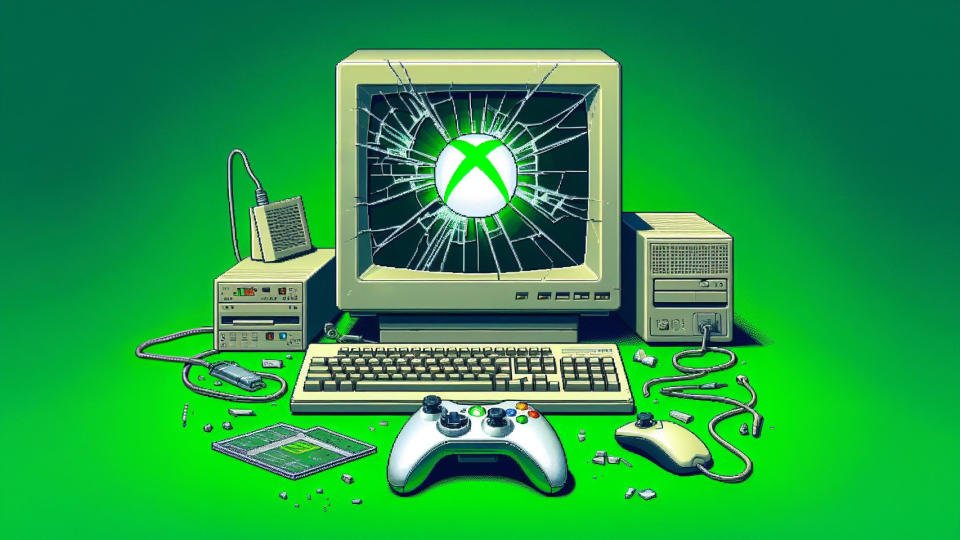
During an internal "town hall" event at Microsoft, Xbox president Sarah Bond used the phrase "every screen is now an Xbox" to describe Microsoft's vision for the future of its gaming ecosystem.
This has been Microsoft's general philosophy since the Windows 8.1 days, in what CEO Satya Nadella used to call the "Intelligent Edge," where devices were simply windows (pun, lol) to your Microsoft Account, and the services therein. The problem is those pesky gatekeeper companies like Apple, Google, and others who restrict and hamstring this vision. Microsoft can't get its A.I. apps or Xbox Game Pass cloud subscriptions monetized or even visible on Android or iOS, because Google and Apple control what apps you see and what business models live and die on those platforms. I can't buy books through the Amazon Kindle app on Android anymore because Google doesn't want it to compete with their own book selling service. Similarly, I can't get Xbox Game Pass cloud gaming on my iPad because Apple doesn't want people playing games that aren't delivered by their monetization system. Windows is an open platform, and Microsoft, perhaps naively, thinks that Google or Apple will one day make their platforms open as well.
I heard that Microsoft was caught off guard by Apple's ban on Xbox Game Pass for iOS, previously fully expecting it to get certified without issue. As such, Microsoft pivoted the entire team to building a PWA (Progressive Web App) version of Xbox Game Pass rapidly, so that users could experience it on the web, and skip Apple's block. Apple is now reportedly planning to block PWAs on iOS as well, wanting control over everything in this corner of the "Intelligent Edge" that makes up Microsoft's vision for its software ecosystem.
This is why I believe it's naïve and perhaps lazy even of Microsoft to even consider eroding its own hardware ecosystems.
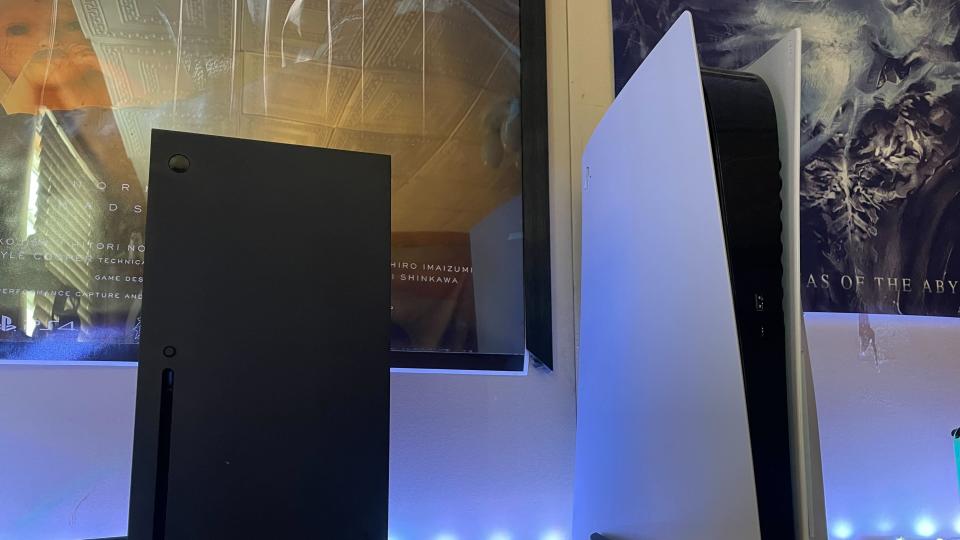
Microsoft wants to have its cake while also eating it. They want to build mobile apps and services like Microsoft Copilot, but by killing Windows Phone, a hardware system it could fully control, they've effectively doomed any chance Copilot might've had at going mainstream with consumers. Google's Gemini A.I. become "the default" on Android, and unless Microsoft does some kind of deal with Apple, some other company or perhaps Apple itself, will become "the default" on iOS. By extension, the same could potentially be true of Microsoft risking its own Xbox ecosystem, handing off control to PlayStation.
Satya Nadella has expressed regret over the death of Windows Phone in the past, in the context of losing control over these "defaults." People complain when Microsoft sets Bing as the default search on their PC or Microsoft Edge as the default browser, but Apple and Google do exactly the same thing with their phone devices, yet people just accept it. I want to believe that Microsoft has learned from these mistakes when it comes to the Xbox hardware ecosystem.
Underinvesting in Xbox hardware could eventually see Microsoft come against the same problems with PlayStation. If Sony becomes the defacto "only" option for console gamers, or even enters into a duopoly with Nintendo, Microsoft would once again exclude itself from the decision making on these platforms. Perhaps Sony could one day come out with a credible Call of Duty competitor, and degrade Call of Duty's visibility to promote its own game. Perhaps Nintendo will make a 1:1 Sea of Thieves copy set in the Zelda universe, and also choke visibility of Microsoft's version of it. Perhaps they'd do the same with Minecraft, and so on. Perhaps they'd block users from getting any benefits from Xbox Game Pass via their platforms, or force Microsoft to give up a cut of the revenue in exchange. Perhaps Microsoft Account sign-ins would get blocked, and so on.
We know from Microsoft's dealings with Apple and Google that platform holders will bend their own rules to exclude the competition if they see them as a threat. It would be incredibly naïve of Microsoft to think that life would be plain sailing if it ditched its commitments to its own hardware ecosystem — and I want to believe they've learned from their past mistakes in this area. Sarah Bond's loud commitments to future Xbox hardware, and Phil Spencer's teasing "likes" of Xbox handheld tweets certainly hint that Microsoft wants to maintain its own platform as well.
Xbox fans have been waiting a long time for consistency
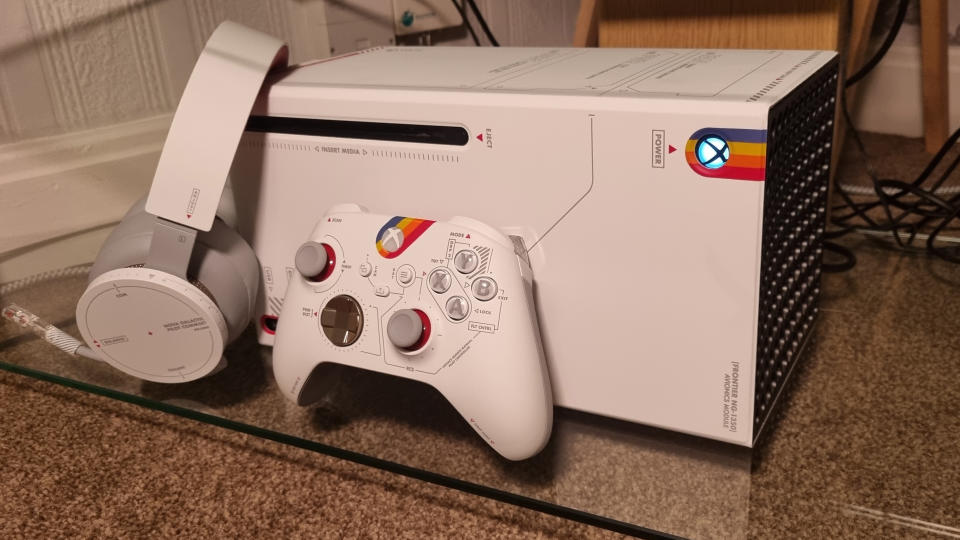
Xbox has become a very diverse business, and in a lot of ways, it mirrors Microsoft's overall business strategy itself. Any single one of Microsoft's verticals could completely fail, without doing harm to the overall business. Xbox now has revenue streams from PC, cloud, publishing, console, merchandising, and beyond — but as for right now, console remains its biggest player, much like Azure is to Microsoft overall. Microsoft does have issues predicting consumer reactions and behavior at times, but their strategy here is not conducted with the mindset of hurting the Xbox console userbase. I believe that Microsoft is building an Xbox handheld specifically to help grow its user base for games designed specifically for Xbox hardware, and I believe it will continue to offer upgrade paths for Xbox Series S users on the lower end, and Xbox Series X users on the higher end.
But, indeed, Microsoft will need to tread carefully to prevent a collapse in interest in its own hardware. Xbox Game Pass by itself is probably not a huge system seller, at least not right now — but Call of Duty could change that, given that Xbox lead Phil Spencer once again confirmed Call of Duty is slated for Xbox Game Pass in the future. Games like Diablo 4 could help to change that, and future big-name, tentpole exclusives like Elder Scrolls 6 could as well. Content is king above all else, and we can see that from the massive success of the Nintendo Switch, which is by far the least powerful system of the big three. Microsoft's biggest issue up until now has been content, but games like Indiana Jones, Blade, Hellblade 2, Avowed, State of Decay 3, and various other upcoming Xbox games should plug the gap.
There's a lot more Microsoft could, and should be doing to help the platform: I don't want to see games like Monster Hunter Stories arbitrarily skipping Xbox only. It HAS improved, but I still want to see more improvements to the usability and versatility of the Xbox app on PC. I think its odd that users can't transfer my Pentiment save file progress from PS5 to PC — is every screen an Xbox or not? Cloud queues are still too long, and the performance is not as good as NVIDIA GeForce Now. I also can't play my own games on the cloud yet (although that should launch this year). A company valued at two trillion dollars shouldn't be releasing games that hit 60/100 on Metacritic. I don't know why more people aren't even aware of Xbox Game Pass and what it offers. And I don't think Microsoft does anywhere near enough work with Xbox Game Pass perks — every single first-party Xbox, Bethesda, and Activision-Blizzard game should offer something to get with Xbox Game Pass perks. I wouldn't mind seeing Microsoft do more with achievements and Xbox Avatars either. The good news is that most of the above are just pure nit-picks. I am, for the most part, really satisfied with my Xbox experience, and that is why I stick around. And that's why I actually want to see Xbox stick around. I like Xbox Play Anywhere, I like the idea of cloud gaming, I like Xbox's major franchises, and I like Xbox hardware. Unlike many of the people commenting on this stuff, I actually actively use Xbox hardware, too.
It was never an issue that PS5 players get to experience Sea of Thieves, and other games. It's only an issue if Microsoft starts caring more about publishing games than building out and maintaining its ecosystem, as I outlined in a previous article. This was never about console tribalism (for most people), it was always about faith in Microsoft's commitment, its clarity, and consistency — and I feel like that's something Microsoft still struggles with as a corporation in general.
I think that's why the jury is firmly out on whether or not this venture is a good idea, but I also firmly this strategy hasn't emerged because Microsoft isn't committed to Xbox hardware. But the proof, as always, will be in the execution. It'll certainly be interesting if Microsoft continues to report growth in console users over the next few quarters.

